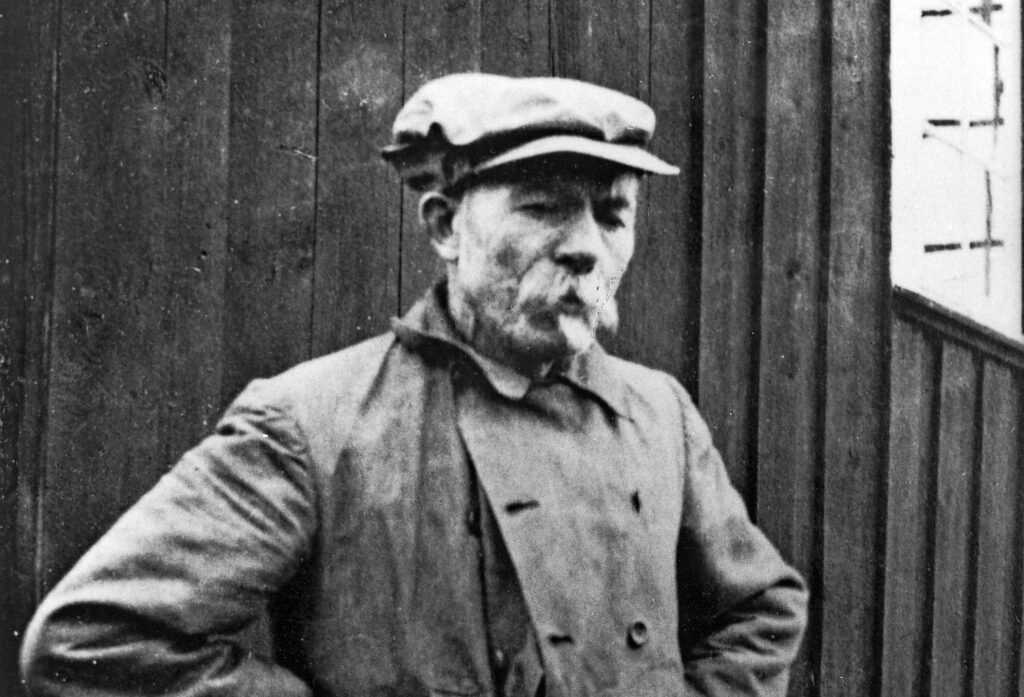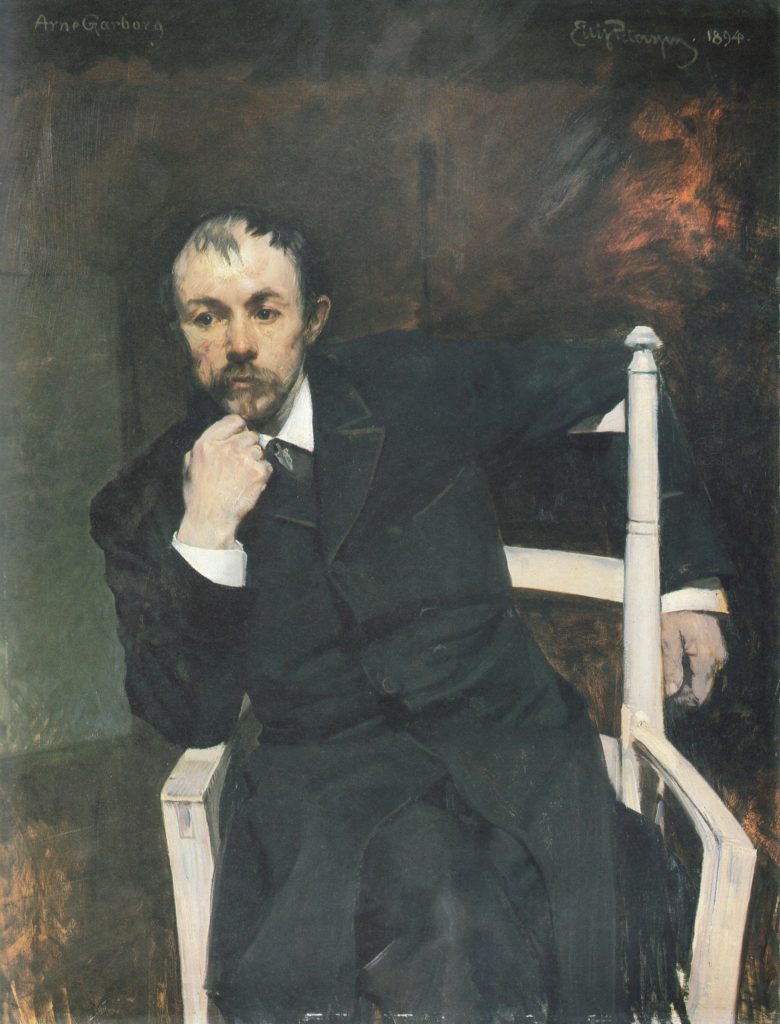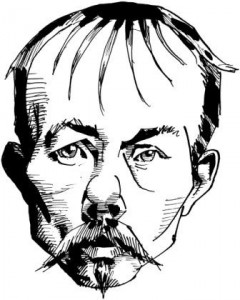Arne Garborg was a leading author from the end of the 1800s. Novels, poems and essays from Garborg are still canonical works. He introduced philosophical, literary and religious ideas through wide writing work, and he founded multiple newspapers.
Garborg was an avid advocate for “Nynorsk” (New Norwegian), a version of the Norwegian language based on old dialects in the countryside, as opposed to “bokmål”, the official version of the Norwegian language based on the Danish language. Garborg often used Nynorsk in his published works, and he is the man behind its artistic breakthrough. Nynorsk eventually became an official version of Norwegian, together with Norwegian bokmål.
Today the poetic masterpiece The Mountain Maid (“Haugtussa”) and the novel Peace (“Fred”) are the most-read works by Arne Garborg. The Mountain Maid has also been immortalized through composer Edvard Grieg’s music (Op. 67). Other important novels were The Making of Daniel Braut (“Bondestudentar”), Weary Men (“Trette men”) and The Lost Father (“Den bortkomne faderen”). Arne Garborg did his most renowned writing in the 1880s and 1890s but he continued to be a prominent intellectual figure in Norway throughout his life.
He was born Aadne Eivindson Garborg on the 25th of January in 1851, and he was the oldest son of a well-maintained farm in Time in Jæren. He wasn’t interested in taking over the farm. He wanted to write. After his confirmation at the age of 15, Arne and some friends started publishing hand-written papers locally.
In 1867, Arne got a job as a teacher, and he later got into a teacher training school. While he went there, his father took his own life. This incident affected Arne throughout his life. After finishing the teacher training school, Aadne worked as a teacher for multiple years. He also started a teaching school magazine and the newspaper “Tvedestrandsposten”. He gave out his first book Smaa-stubber under the pseudonym Alf Buestreng in 1873. The same year, he travelled to Kristiania to “study or die”.

In Kristiania, Arne got in touch with Norway’s intellectual and political environment. This is also where he met Hulda. He wrote articles for the papers, and he was said to be a good editor. The author underwent the name change in 1875 and got to call himself Arne Garborg. At this time, he was learning Nynorsk by basing it on his dialect and by using the grammar of Ivar Aasen. This formed his thoughts on national building. Together with Rasmus Steinsvik, Arne started the Nynorsk magazine “Fedraheimen”. He gave out his first book with his own name in Kristiania in 1881: Ein Fritenkjar (A Free Thinker). More books followed. He brought up relevant, heated subjects in society, both in fiction and through articles, and was an important voice in the contemporary public debate. But what he wrote was a bit intimidating for the people in the government, and in 1887, Arne lost his job as an auditor general because of his novel Mannfolk.
When Arne lost his job, he moved to his cottage at Kolbotnen in Tynset with Hulda. They stayed there for nine years, got married and had a son. Arne wrote multiple of his central works at Kolbotnen. During these years, he became more and more radical, and he got interested in anarchism. Together with Rasmus Steinsvik, he started the language paper Den 17de Mai (The 17th of May). Arne became some sort of guru for younger literati from both Norway and abroad. Arne also connected with multiple of the leading visual artists in the contemporary.
Life at Kolbotn was difficult. It was far from most things. Their son, Tuften, was to begin going to school and in 1896, they moved. But Arne missed Jæren. He bought land above Undheim in Jæren and got a writing cottage listed here. He went here many summers to write. Arne got a fixed annual income in state salary in 1898.
In the last 20 years of his life, the poet let his ambitions for fiction rest and focused more on articles and writing in his diary. He engaged in the American Henry George’s views about Georgism, and he also used the time to translate classic literature: Goethe, Holberg, Moliere, Shakespeare, Ramayana and Homer. Arne also pondered religious questions.
When Arne was 70 years old, he received a present of around 100,000 Norwegian kroner from the Norwegian population – money that he used to support poor young colleagues. This shows what impact he made on people.
On the 14th of January in 1924, Arne died after having been sick for some time. He got cremated and his funeral was held in Trefoldighetskirken (Trinity Church) in Oslo at the state’s expense. In June of the same year, his ashes were moved and heaped in the garden outside of Knudaheio.

